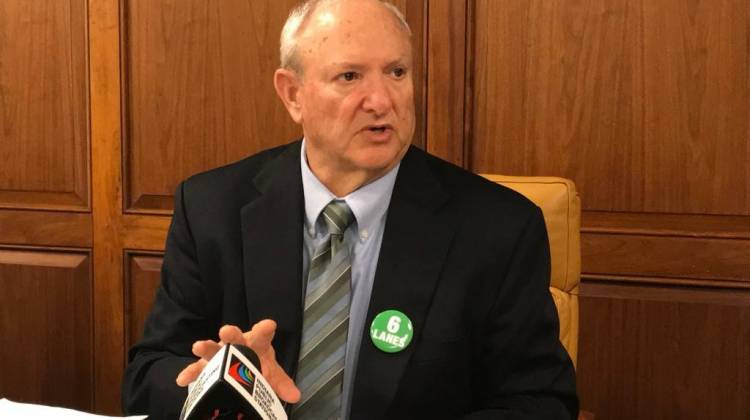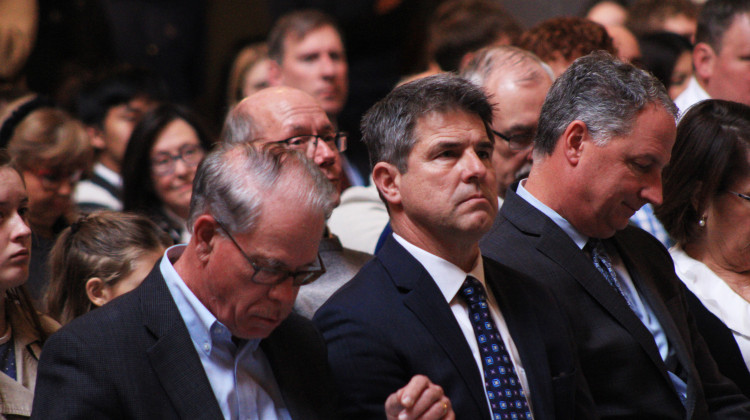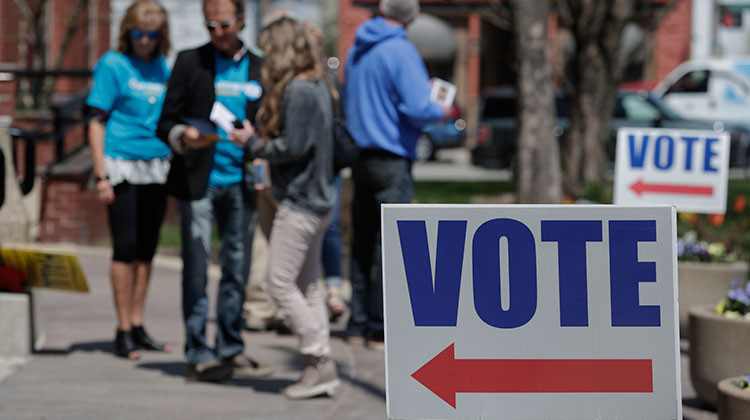
Senate budget architect Luke Kenley (R-Noblesville) discusses his caucus' budget proposal.
Brandon Smith/IPBSenate Republicans rolled out their version of the budget bill Thursday, one that diverges from the House budget in a few key areas.
Perhaps the biggest difference between the House and Senate budget plans is a tax increase. The House approved a $1 per pack cigarette tax increase, which helped cover a funding shift to pay for roads. Senate Republicans got rid of that road funding shift and eliminated the cigarette tax hike.
Senate budget author Luke Kenley (R-Noblesville) says the state might need that cigarette money later.
“We don’t know where we’re going on our health care needs and whatever the federal government does do in the next few years could create a big hole; Indiana could have a big liability. So I think, at that time, the cigarette tax would be a logical thing to look at,” Kenley says.
But House Speaker Brian Bosma (R-Indianapolis) says any federal health care change will require a lot more work on Indiana’s health care program.
“We have to look at the whole program, top to bottom – the funding, the eligibility, the benefits,” Bosma says. “So I’m not as concerned about that as Senator Kenley is.”
Bosma says the cigarette tax hike – and the related road funding shift – will continue to be part of negotiations between the two chambers.
 DONATE
DONATE








 Support WFYI. We can't do it without you.
Support WFYI. We can't do it without you.